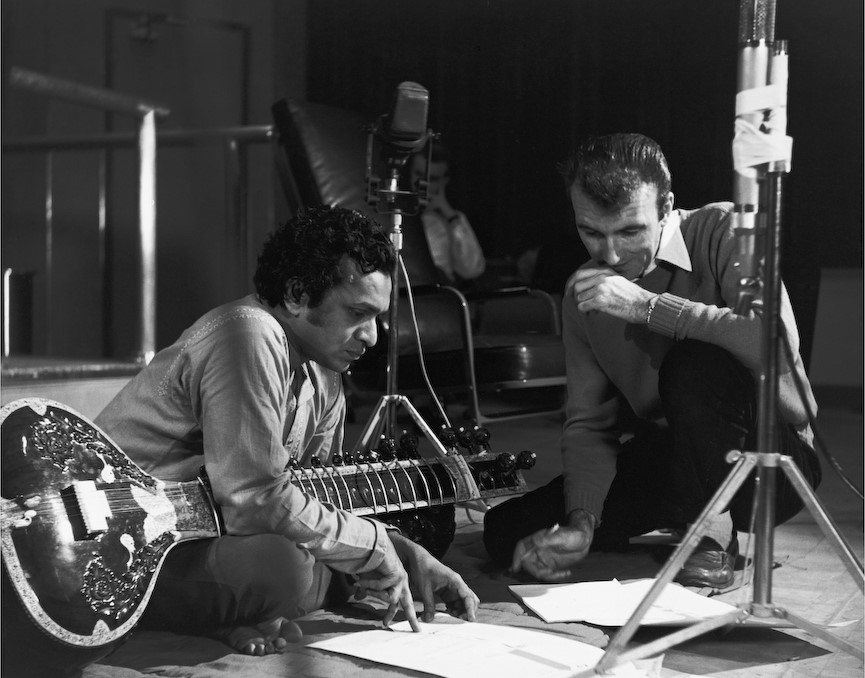Dubbed 'the godfather of world music' by Beatle George Harrison, Ravi Shankar's influence on the global music scene is impossible to quantify or fully express. Born in 1920, he was the foremost sitar player of his, and any, generation...
Dubbed 'the godfather of world music' by Beatle George Harrison, Ravi Shankar's influence on the global music scene is impossible to quantify or fully express. Born in 1920, he was the foremost sitar player of his, and any, generation. Through his vast creativity and genius, the sitar – a plucked-stringed instrument used mainly in Indian classical music – became a key element in world music. He collaborated with key musicians of all genres, he worked in composition and film scoring, politics and philanthropy. When, in 1971, he collaborated with Harrison to organise the Concert for Bangladesh benefit performances, their work raised thousands of pounds, and pioneered the charity performances that are so commonplace today.
A truly unique man and musician, in his memory, AnOther has compiled a list of facts about the late, great Ravi Shankar.
1. Ravi Shankar's first love was dance. In 1930, aged just ten, he joined his older brother Uday in Paris as a member of a touring ballet troupe, whose members included the world famous ballerina Anna Pavlova. He lived in the French capital for two years, and for his teens travelled across Europe, Asia and the US. It was during this time that he was first introduced to the sitar.
2. Ravi Shankar worked with a number of iconic musicians, including the sarodist Ali Akbar Khan, Jazz musicians John Coltrane and Don Ellis, the violinist Yehudi Menuhin, the composer Philip Glass, the conductor Andre Previn, and, most famously, the Beatles. Shankar met George Harrison and Paul McCartney in London in 1966, and soon after Harrison came out to India to take lessons from the maestro. An intensive course of training, patiently overseen by Shankar, meant that Harrison was able to master the basics of the notoriously tricky instrument, and it features on several Beatles tracks, including Within You Without You, from 1967's Sgt. Pepper's Lonely Hearts Club Band.
"An intensive course of training, patiently overseen by Shankar, meant that Harrison was able to master the basics of the notoriously tricky instrument, and it features on several Beatles tracks..."
3. He worked on the music for a number of films, including those for Satyajit Ray's Apu Trilogy (1955-59). In 1982, he was nominated for an Academy Award for Best Original Music Score, for Sir Richard Attenborough's Gandhi.
4. He won innumberable awards and citations, including a first Grammy in 1967 for East Meets West, an album recorded with Yehudi Menuhin, and a another in 2002 for his album Full Circle: Live at Carnegie Hall. Over the years he had been appointed a Bharat Ratna (Jewel of India), a Commandeur de la Legion d'Honneur in France, and an honoury KBE in Britain. The breadth of these accolades, which transcend geography and musical genres, reflect the universality of his work. Just a week before his death, he was told that he was to be the recipient of a Lifetime Achievement award at the 2013 Grammy awards in February.
5. Shankar's family life was complicated. Married first to Annapurna, the daughter of his mentor Allauddin Khan, they had a son in 1942, but divorced later in the decade. He subsequently had many affairs, including one with the New York concert promoter Sue Jones with whom he fathered a daughter, Norah, the singer and nine time Grammy winner. In 1989, he married Sukanya Rajan, with whom he'd had already had a daughter, Anoushka. Anoushka became his protege on the sitar, under her father's tutelage, and father and daughter toured the world playing together. Their last concert took place just a few weeks ago in California.
